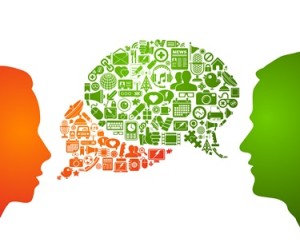In this week’s News of Note, Amazon continues its competition with Starlink by launching another batch of internet satellites, WhatsApp receives a ban by congressional staffers and “the ChatGPT of quantum computing” launches in Canada. Elsewhere, Texas Instruments announces a major investment in semiconductor production in the United States.
Articles Posted in Large Language Models
Who (If Anyone) Owns AI-Generated Content?
 Whose content is it anyway? This is one of the questions that many hope will be answered by a federal court in Thaler v. Perlmutter. In June 2022, computer scientist Dr. Stephen Thaler sued the U.S. Copyright Office to redress the denial of his application to register copyright in his AI system’s visual output under the Office’s “Human Authorship Requirement.” A few months later, the Office again enforced this requirement, reversing its decision to register Kristina Kashtanova’s illustrated comic book, Zarya of the Dawn, after it became clear that AI was used to generate those images. While Thaler now asks a U.S. federal court to determine whether an AI system can author copyrightable work, and to effectively overrule the Office’s “Human Authorship Requirement,” it remains to be seen whether the court will tackle those broad issues, or instead narrowly focus on whether the Office had reasonable grounds to deny Thaler’s application.
Whose content is it anyway? This is one of the questions that many hope will be answered by a federal court in Thaler v. Perlmutter. In June 2022, computer scientist Dr. Stephen Thaler sued the U.S. Copyright Office to redress the denial of his application to register copyright in his AI system’s visual output under the Office’s “Human Authorship Requirement.” A few months later, the Office again enforced this requirement, reversing its decision to register Kristina Kashtanova’s illustrated comic book, Zarya of the Dawn, after it became clear that AI was used to generate those images. While Thaler now asks a U.S. federal court to determine whether an AI system can author copyrightable work, and to effectively overrule the Office’s “Human Authorship Requirement,” it remains to be seen whether the court will tackle those broad issues, or instead narrowly focus on whether the Office had reasonable grounds to deny Thaler’s application.
The EU’s Proposed Artificial Intelligence Law Enters Final Stage
 The European Union (EU) has made steady progress in shaping its proposed AI law, known as the “AI Act.” With the European Parliament approving its preferred version, the AI Act has now entered the final stage of the legislative process (a three-way negotiation, known as “trilogue”). The aim is to agree to a final version of the law by the end of 2023. The EU’s objective is to ensure that AI developed and utilized within Europe aligns with the region’s values and rights, including ensuring human oversight, safety, privacy, transparency, non-discrimination, and social and environmental well-being.
The European Union (EU) has made steady progress in shaping its proposed AI law, known as the “AI Act.” With the European Parliament approving its preferred version, the AI Act has now entered the final stage of the legislative process (a three-way negotiation, known as “trilogue”). The aim is to agree to a final version of the law by the end of 2023. The EU’s objective is to ensure that AI developed and utilized within Europe aligns with the region’s values and rights, including ensuring human oversight, safety, privacy, transparency, non-discrimination, and social and environmental well-being.
Implementing a Policy for Employee Use of ChatGPT in the Workplace
 The use of generative AI tools, like ChatGPT, are becoming increasingly popular in the workplace. Generative AI tools include artificial intelligence chatbots powered by “large language models” (LLMs) that learn from (and share) a vast amount of accumulated text and interactions (usually snapshots of the entire internet). These tools are capable of interacting with users in a conversational and iterative way with a human-like personality, to perform a wide range of tasks, such as generating text, analyzing and solving problems, language translation, summarizing complex content or even generating code for software applications. For example, in a matter of seconds they can provide a draft marketing campaign, generate corresponding website code, or write customer-facing emails.
The use of generative AI tools, like ChatGPT, are becoming increasingly popular in the workplace. Generative AI tools include artificial intelligence chatbots powered by “large language models” (LLMs) that learn from (and share) a vast amount of accumulated text and interactions (usually snapshots of the entire internet). These tools are capable of interacting with users in a conversational and iterative way with a human-like personality, to perform a wide range of tasks, such as generating text, analyzing and solving problems, language translation, summarizing complex content or even generating code for software applications. For example, in a matter of seconds they can provide a draft marketing campaign, generate corresponding website code, or write customer-facing emails.
AI as Prior Art: New Hurdles and Horizons in Patent Disputes
Artificial intelligence is rapidly evolving, and large language models (LLMs) like ChatGPT are one of the more exciting examples. Their generative capabilities have implications for our patent system, some of which are underappreciated and nonintuitive.
Under U.S. patent law, an inventor may not obtain a patent if the claimed invention would have been obvious to an artisan of ordinary skill, in view of the prior art. (See 35 U.S.C. § 103.)
 Internet & Social Media Law Blog
Internet & Social Media Law Blog



